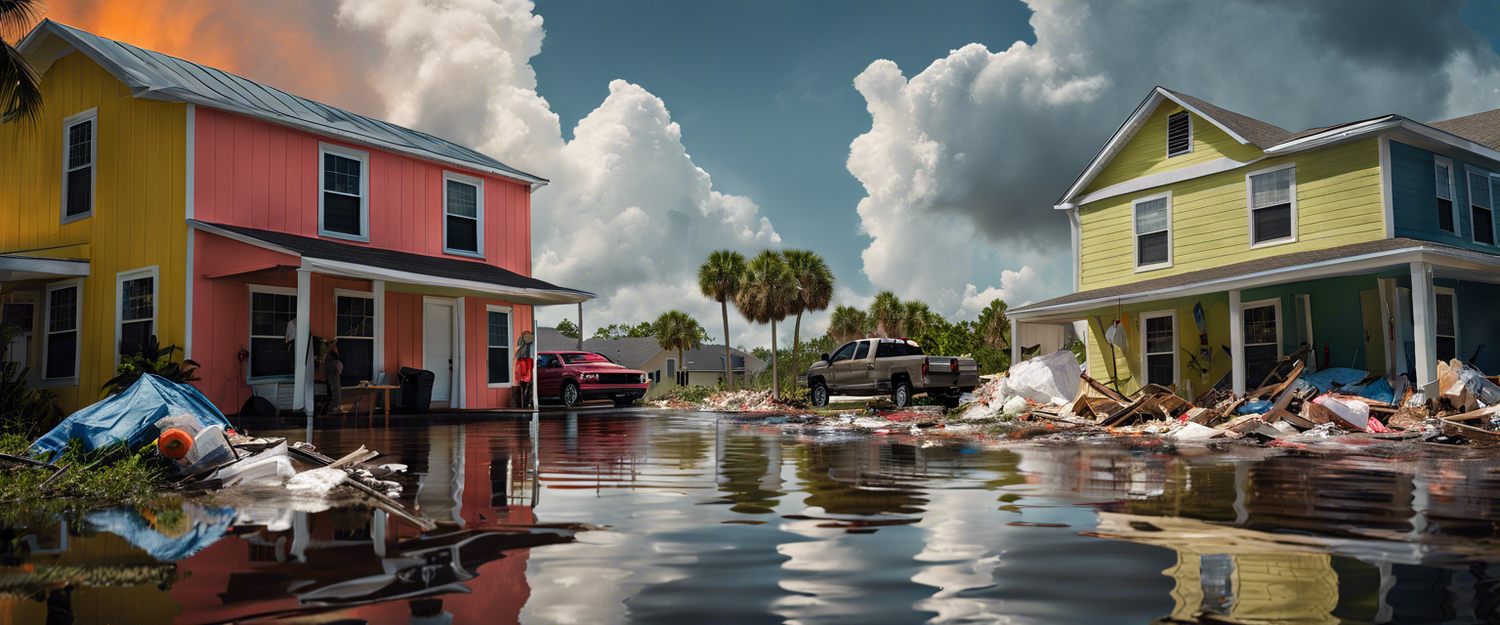FEMA Tackles Misinformation Amid Hurricane Cleanup Efforts in Florida
The Federal Emergency Management Agency (FEMA) is currently managing a significant cleanup operation in Florida following the devastation caused by Hurricane Milton, which intensified rapidly after Hurricane Helene impacted the state. In addition to their emergency response duties, FEMA is also engaged in combating widespread misinformation that has emerged in the wake of these storms.
Confronting Misinformation
During a recent press call, FEMA Administrator Deanne Criswell expressed concern over the unprecedented levels of misinformation circulating regarding the hurricanes. According to Politico, she remarked, "Misinformation around the storms is absolutely the worst I have ever seen." In response, FEMA has set up a rumor response page dedicated to clarifying claims related to the hurricanes. Though FEMA has previously undertaken similar actions, Criswell admitted that the current situation surpasses her expectations.
Clarifying Claims and Addressing Falsehoods
FEMA's rumor response page addresses several misleading claims, including statements made by former President Donald Trump. One of the claims suggested that FEMA would only provide $750 to disaster survivors. FEMA clarified that this amount is a preliminary disbursement through "Serious Needs Assistance" for immediate necessities like food and emergency supplies. Survivors could potentially qualify for additional funding types beyond this initial amount.
Furthermore, FEMA refuted assertions that disaster response resources had been diverted to border issues, stating categorically that "Disaster Relief Fund money has not been diverted to other, non-disaster related efforts." These clarifications are vital for ensuring that affected individuals can access the aid they need during these difficult times.
The Role of Social Media in Spreading Misinformation
In a notable instance, Elon Musk, a significant figure in technology, added to the misinformation when he claimed on X that FEMA was "actively blocking citizens who try to help." Keith Turi, FEMA's acting director for response and recovery, strongly refuted these claims, stating, "FEMA does not block anyone from helping or assisting. We do not confiscate supplies and use them for other purposes. In fact, we do the exact opposite." This misinformation not only misrepresents FEMA’s mission but also risks undermining the cooperation and support needed for effective disaster recovery.
The Impact of Misinformation on Recovery Efforts
Turi emphasized the detrimental impact of false information, noting, "There are people that are hurting because they’ve lost loved ones. Their homes are destroyed. We need to be able to have an environment where we can trust each other and they can trust that there is help on the way." Such misplaced narratives can deter disaster survivors from seeking the assistance they are entitled to and need.
Moreover, Criswell pointed out that this misinformation not only affects the general public but can also dissuade FEMA workers from executing their duties. She stated, "If it creates so much fear that my staff doesn’t want to go out in the field, then we’re not going to be in a position where we can help people." This highlights the importance of combating misinformation for the welfare of both disaster survivors and the emergency response teams working tirelessly in the field.
Foreign Influence in Misinformation Campaigns
While there is no current evidence linking foreign actors to the spread of misinformation regarding the recent hurricanes, FEMA has noted previous incidents involving "Pro-China actors" engaged in similar activities during the Maui fire response last year, as reported by Axios. This potential for external influences emphasizes the ongoing challenges FEMA faces in ensuring clear communication amid emergencies.
Conclusion
As FEMA continues its critical work in Florida in the aftermath of Hurricane Milton, it remains essential for accurate information to circulate to aid both disaster survivors and recovery efforts. By directly addressing misinformation, FEMA aims to foster trust within the community and ensure that those in need can access the necessary resources for recovery.



Laat een reactie achter
Alle reacties worden gemodereerd voordat ze worden gepubliceerd.
Deze site wordt beschermd door hCaptcha en het privacybeleid en de servicevoorwaarden van hCaptcha zijn van toepassing.